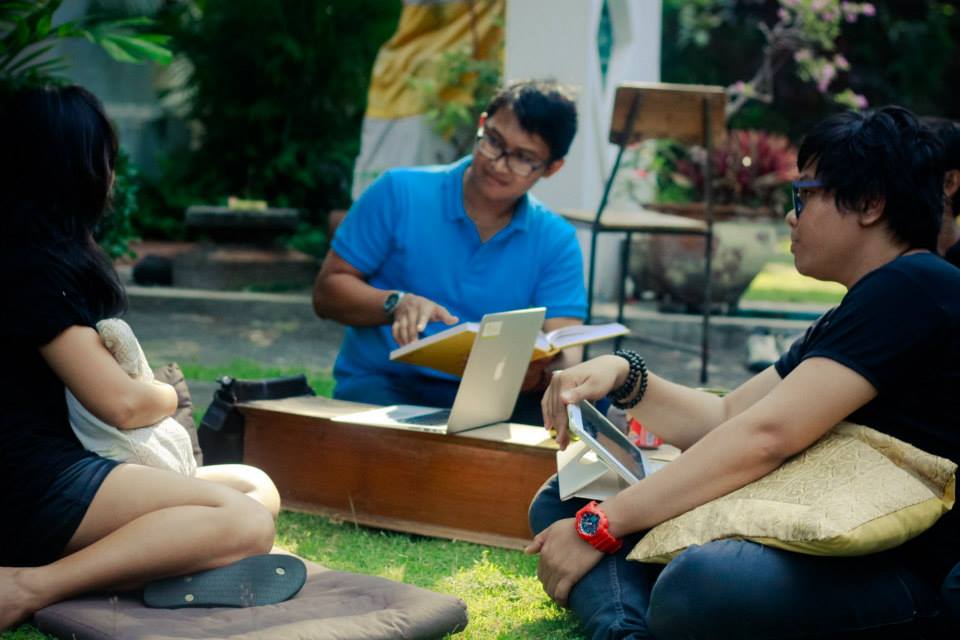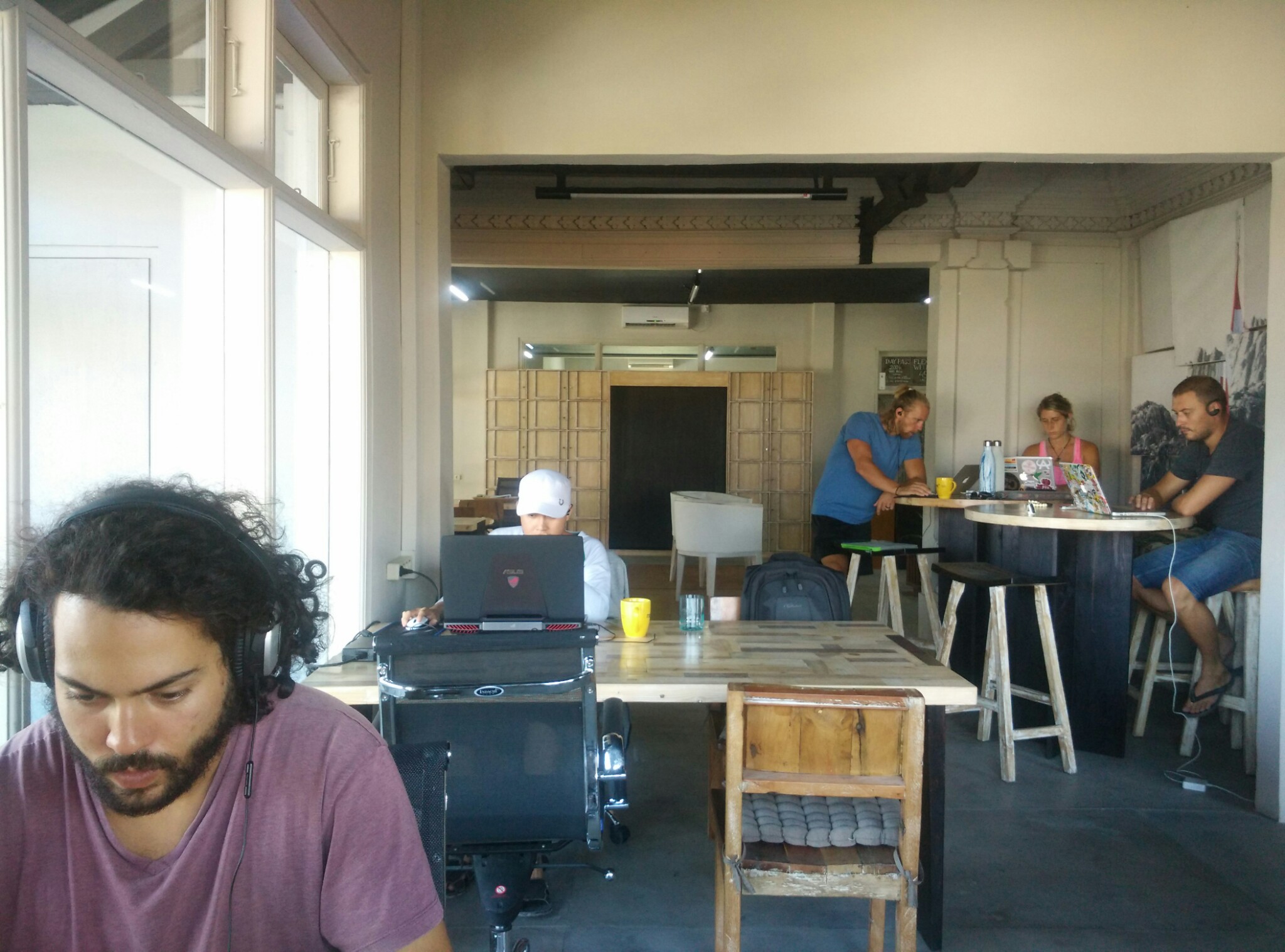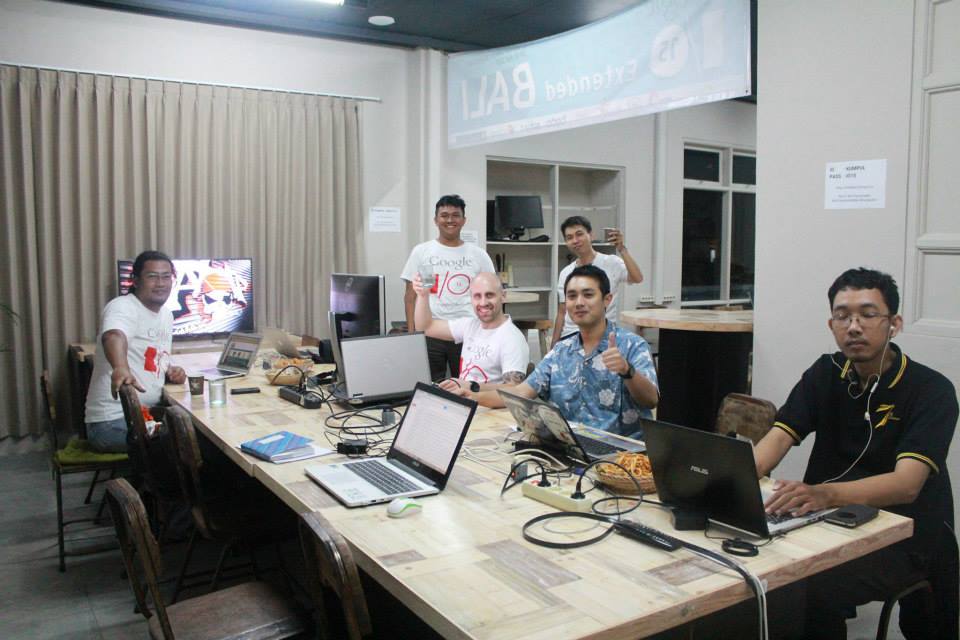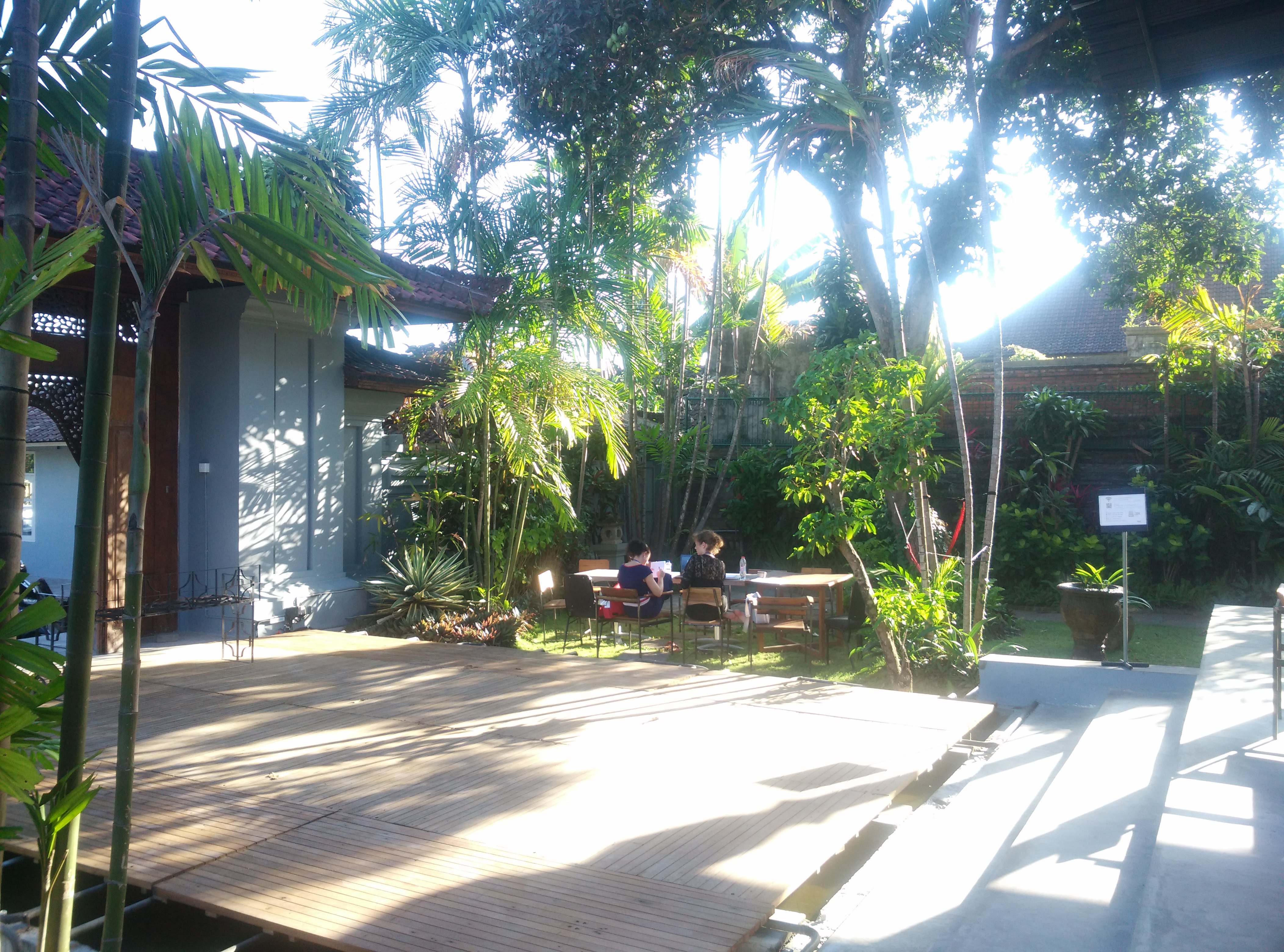Kumpul Coworking Space: Entrepreneurship & Community Development
We are happy to interview Faye and Dennis Alund, the founders of Kumpul.
- How did you come up with Kumpul?
The idea of creating a “space to share and collaborate” has been with us for quite a long time. Long before we knew that there is a term called coworking. We had just moved to Jakarta in 2009 and we didn’t have any professional network. Dennis was doing freelance work from home. At that time there were no coworking spaces in Indonesia and we also hadn’t heard about the trend who had recently started in the west. But we had a need and want for something like a coworking space.
We were often talking about that someday we wanted to create something that we would now call a coworking space. But it wasn’t until we learned about the concept of coworking spaces that we realized that this is a real thing and that it can be a sustainable business. We studied how to build it in a way that will scale and we always believed that it needs to be a business if we are going to be able to keep on doing it and provide values to other people.
A coworking space is not like a quick fix that instantly brings value. It takes time to build relationships and a space need to be around long enough for the members to gain trust and feel comfortable in investing their time and energy to start sharing with the other members of the community. It is not until you reach that point that the coworking space is really providing value to its members.
We chose the name Kumpul, from Indonesian language, that means “to gather” or used in context of “getting together”.

We are individuals, opposites, coffee addicts, inseparable friends, food lovers, married couple, parents of two beautiful girls and we are the founders of Kumpul. (Faye and Dennis Alund)
- What role is coworking playing in Indonesia?
By being located in Bali, I think that there are large varieties of what role that it is playing. But speaking for ourselves, we wanted to create a space that would play the same role as a space in Jakarta or Bandung, for example. We have learned that there is a direct relation between a country’s economic development and the amount of entrepreneurs. The US is having something like 14% entrepreneurs, Singapore around 8% and Indonesia is only having 0.8%.
For us, being in Bali we have a chance to create a platform for entrepreneurs and creative communities to gather and grow around. We want to empower and develop a culture in Bali that is not only relying on hospitality and tourism.
- Could you tell us a bit about Kumpul members?
The average Kumpul member is a local resident in Bali. Most of them freelancers or small business owners. The type of professions and fields really includes a little bit of everything.
When we speak of local, we define it as someone that is fairly long term resident. The same way you would call yourself local in Stockholm or London. It depends on your intention with the stay. We feel like local when we don’t have any immediate plan to leave or when we are emotionally invested in the local community of the place where we live.

Kumpulian. Image source: Kumpul's Facebook page
- Can you describe Kumpul in three numbers? And two words?
4 1 and 4 everyone …? :)

Kumpul's community
- How do you see the future of coworking and digital nomading?
We have lately been discussing the impact of digital nomading, since we are one of the most popular travel destinations in the world. We have been talking about the long term impact and how we, as the host, can make the most out of it.
Financially speaking, we are not sure that digital nomadism is directly making much difference as it is right now. Indirectly it can probably inspire local initiatives or nourish the creativity in someone, which can lead to some real impact on the local economy, and that is fantastic!
But often we see that digital nomadism is more about the individual’s own experience and development. We are hoping and working for that the digital nomadism will result in more partnerships that bridges cultures and countries.
We are thinking to develop a project, or programme if you would like to call it, where we create a curriculum for digital nomads that wants to share skills or create workshops. There is so many inspiring people with great skillsets that has enabled them to live a location independent life.

Google I/O 2015 extended Bali
We often see that many travelers wants to help. But they do so by engaging in activities such as volunteering for beach cleaning or other hard labor. It is all with good intentions, but unfortunately a waste of skills that could have so much more impact if used in the right way. If you are a marketing strategist, you can help the beach cleaning initiative to get public attention in a great marketing campaign. It could result in large donations that could help the cause much more than just another pair of hands on the beach.
The real value is in the very skills or knowledge that has enabled most digital nomads to live the life that they do. The traveling itself is just the character of the lifestyle. We really believe that there is so much great opportunity of developing this into something that is of larger benefit for all parties.
Even a person without an expert skillset brings a cultural difference to the place where he or she is traveling to. Sometimes it can be a great value to hear how things look and get feedback from a person with different background and perspective.
So we are currently trying to define the way that this could be molded into a package or product that we can offer visitors and communicate as a available service to the local residents.

Kumpul's garden
Images source: Kumpul's website and Facebook page
Related stories
Connection, Belonging, Identity: Why Branding Matters When You’re Building Your Community
Guided by industry insights, we navigate the intricate landscape of branding, probing fundamental questions posed by thought leaders like Cat Johnson. Beyond logos and colour schemes, we uncover the essence of brand identity.
Elevating mixed-use spaces: The crucial role of hospitality and technology in community management
As mixed-use developments continue to grow in popularity, merging visitors with locals through a high level of hospitality, and community, in whatever way the space functions, is of prime importance.
The glorious renaissance of community-led coworking
Join us in exploring how the coworking movement transcends beyond just providing desks and chairs- it's a catalyst for community and collaboration.
3 Things People Want From Their Workplace Experience
According to Appspace’s 2023 Workplace Experience Trends & Insights Report, 93% of people who work in an office think their organisation could do more to improve the workplace experience. To craft a truly exceptional workplace experience, it’s useful to know what people are actually looking for in an office environment – which, of course, can change over time. So, we decided to do a little digging.
Overturning a Man’s World: How Coworking Supports Women - Part 2
In this follow-up to the recent blog post, Overturning a Man’s World, we continue an exploration of how coworking supports women.
Building an Inclusive Workplace Experience at Huckletree
Huckletree, a longstanding customer of Nexudus, has a growing network of shared workspaces across the UK and Ireland. It represents a community of over 4,000 people working across dynamic tech and creative sectors including web3, fintech, AI, govtech, and sustainable innovation.
How To Make Your Coworking Software Work For Your Brand
With so many new and interesting coworking offerings emerging, it’s never been more vital for existing spaces to differentiate themselves and stand out. And one of the best ways to achieve this is by establishing a strong brand presence.
Behind The Desk: Meet Our Founders
Welcome to, where we dive deep into the brains behind Nexudus. Today, we’re chatting with Nexudus’ CTO and co-founder Adrian, as he shares his journey from selling Internet Cafe technology to being the co-founder of a global coworking company.
Creating Future-Ready Workspaces with Nexudus' Experts 🌍
We sat down with Stephen Wood, Nexudus’ North America Account Lead and our North American technology partner, Serge Rose, to talk about their recent collaboration in assisting a Canadian client with their migration to Nexudus and to delve into their thoughts on the future of technology in workspaces moving forward!
Overturning a Man’s World: How Coworking Supports Women
From beer taps to thermostat settings, we're examining how coworking can be a game-changer for women at work.

